Top Things To Do In Panama In 2026
Panama’s geographic size is modest, but its global relevance is not. The country connects two oceans and two continents, operates on a dollarized...
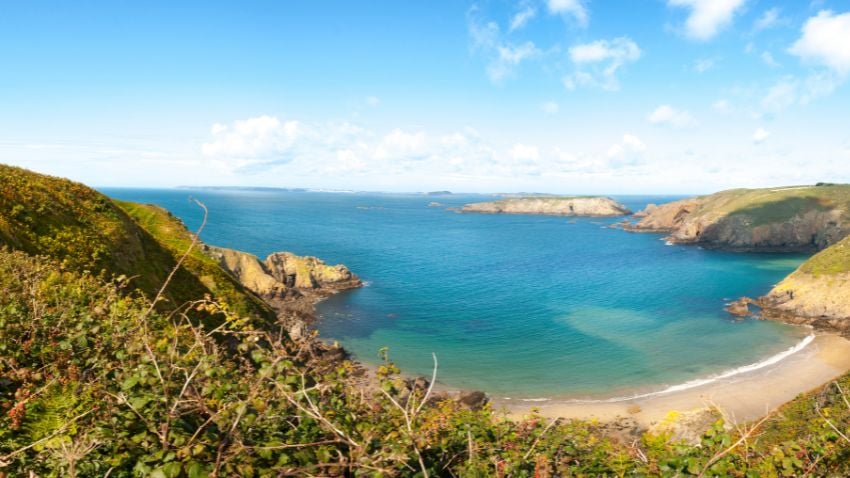
5 min read
The Channel Islands are a group of islands located in the English Channel just off the coast of France, with a population of around 170,000 people. The Channel Islands' main islands are Jersey, Guernsey, Alderney, Sark, and Herm. Of these islands, Jersey, Guernsey, and Sark are the most well-known and popular destinations for tourists and high-net-worth individuals, and they are hotspots for expats. The islands are self-governing, with their own legal systems, currencies, and financial regulations. Despite their proximity to France, the islands are not part of the European Union and have an independent relationship with the UK.
This article will explore in detail what the Channel Islands are, their history, political systems, investment opportunities, taxes, and benefits.
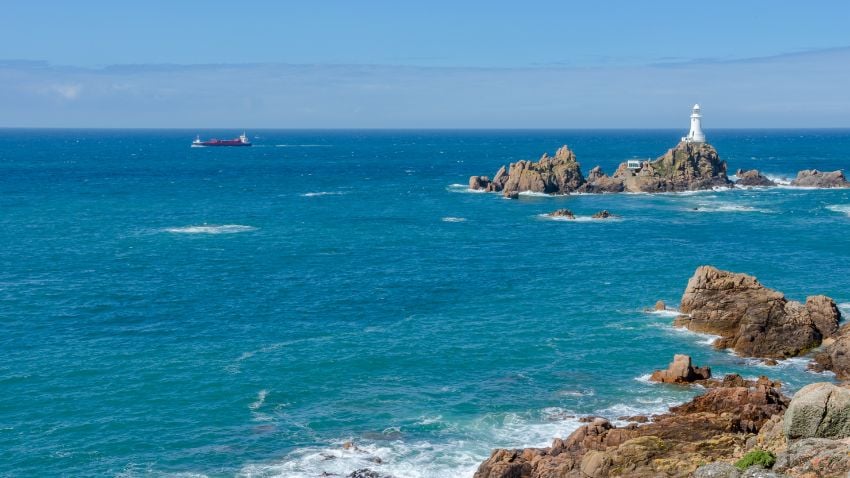
The Channel Islands' main islands are Jersey, Guernsey, Alderney, Sark, and Herm
The Channel Islands have a rich history, dating back to ancient times. The islands were part of the Duchy of Normandy until the 13th century, when they became the property of the English Crown. During World War II, German forces occupied the islands, and their liberation in 1945 marked the war's end in Europe.
Today, the Channel Islands are known for their stunning beaches, rugged coastline, and mild climate. They have a thriving tourism industry and are also a hotspot for high-net-worth individuals attracted by their tax benefits and relaxed way of life.
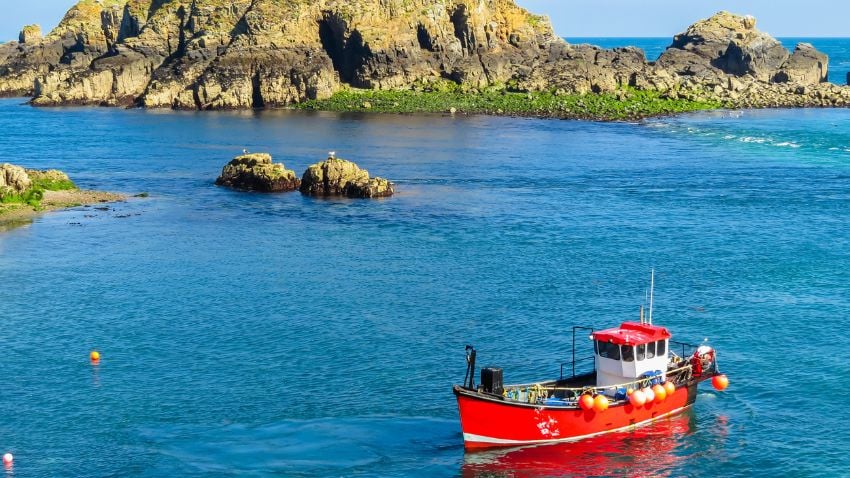
Jersey is a popular tourist destination thanks to its stunning beaches
Jersey is the largest of the Channel Islands, covering an area of approximately 45 square miles. The island has 12 parishes, each with distinct characteristics and charm. The capital, Saint Helier, is the island's largest town and commercial center. The official languages of Jersey are English and Jèrriais, a Norman-French dialect still spoken by a small percentage of the population.
Jersey is a popular tourist destination thanks to its stunning beaches, rugged coastline, and pleasant climate. The island is also home to a thriving finance industry, with many international companies and high-net-worth individuals choosing to establish residency here.
Jersey's political system is based on parliamentary democracy, with the island's government consisting of the Chief Minister and the Council of Ministers. The Crown appoints the Chief Minister, and the Council of Ministers consists of the Chief Minister and ten ministers. The island also has a legislature, the State of Jersey, which comprises 49 elected members known as deputies.
Although Jersey doesn’t offer a direct residency by investment program, you can still be eligible for high-value residency. To be eligible, you must follow a few prerequisites, such as proving your residency would benefit the island in some way (usually business or socially). You'll also need to show that you have annual worldwide earnings comfortably in excess of £850,000 ($919.326 USD) per year, and this must be sustainable income. The minimum tax payable on your income is £170,000 ($183.865 USD) per year. However, this does not guarantee your high-value residency status. If you are successful, you will be granted residency status for yourself and your immediate family and can take advantage of the island's favourable tax regime.
Jersey has a relatively low tax regime compared to many other countries, with no capital gains or inheritance tax. The island also offers a range of tax incentives to encourage investment and business growth. In addition, Jersey has a high standard of living, with excellent healthcare, education, and transport infrastructure. The island's economy is diverse and robust, with strong finance, tourism, and agriculture sectors. The island has a rich cultural heritage, with museums, art galleries, and historic sites to explore.
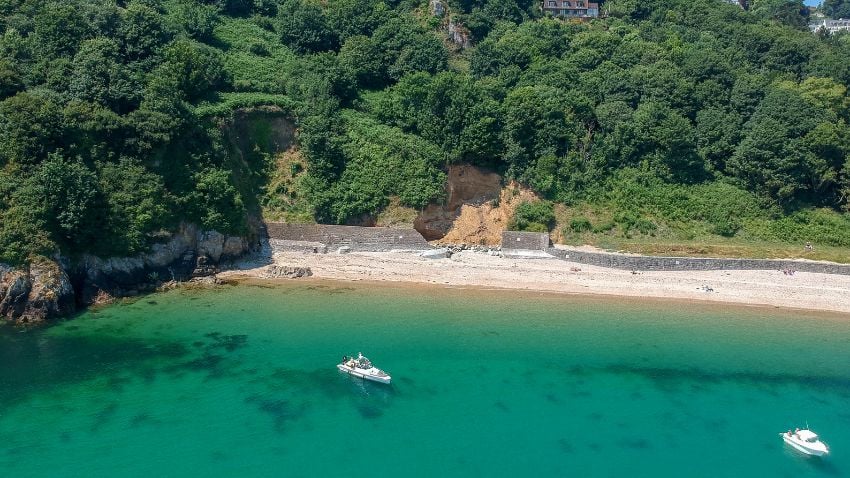
The official languages of Guernsey are English and Guernesiais, a Norman-French dialect similar to Jèrriais
Guernsey is the second largest of the Channel Islands, covering an area of approximately 24 square miles. The island is divided into ten parishes with unique characters and histories. Guernsey's rich history is evident in the many historic buildings and monuments dotted around the island. The capital of Guernsey is St. Peter Port, a charming harbour town with cobbled streets, boutique shops, and a vibrant food scene. The official languages of Guernsey are English and Guernesiais, a Norman-French dialect similar to Jèrriais. Guernsey has a diverse economy, with finance, tourism, and agriculture all playing important roles and is a popular destination for high-net-worth individuals looking for a peaceful and secure place to live.
Guernsey's political system is also based on parliamentary democracy, with the island's government consisting of the Chief Minister and the Policy and Resources Committee. The Crown appoints the Chief Minister, and the Policy and Resources Committee comprises ten members who the States of Deliberation elect, the island's legislature. The States of Deliberation consists of 38 members, known as deputies.
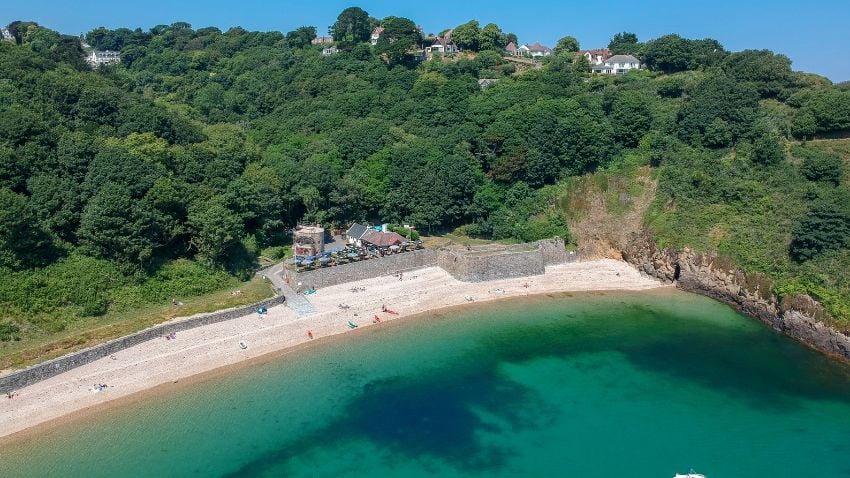
Guernsey's residency by investment program is one of the most attractive investment opportunities
The Guernsey Trust is a popular option to establish a trust. Guernsey has a robust legal framework that protects the rights of both settlors and beneficiaries, and the island's trust laws are highly regarded globally. Guernsey trusts are flexible and can be tailored to meet the specific needs of the settlor and beneficiaries.
Guernsey has a favourable tax regime, with no capital gains or inheritance tax. The island also offers a range of tax incentives to encourage investment and business growth. In addition, Guernsey has a high standard of living, with excellent healthcare, education, and transport infrastructure. The island's economy is diverse and robust, with solid finance, tourism, and agriculture sectors, in addition to its tax benefits. The island has a rich cultural heritage, with museums, art galleries, and historic sites to explore.
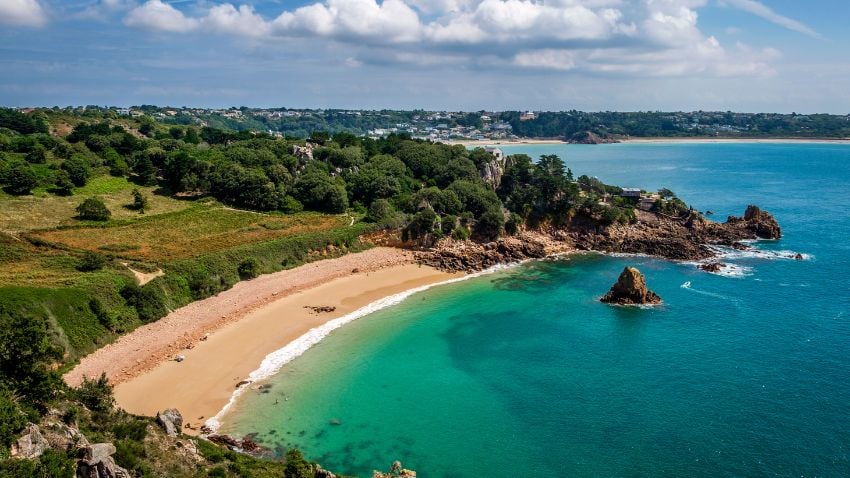
Sark's political system is unique among the Channel Islands, based on a feudal system
Sark is the smallest of the three central Channel Islands, covering an area of just 2.1 square miles. The island is divided into two parts: the main island of Sark and the smaller island of Brecqhou. Sark is known for its rugged beauty, with cliffs, rocky coves, and sweeping sea views. The island has a small, close-knit community and is a popular destination for visitors seeking a peaceful and tranquil retreat.
Sark's political system is unique among the Channel Islands, as it is based on a feudal system that dates back to the 16th century. The island is governed by a Seigneur, who is appointed by the Crown, and a Chief Pleas, which is made up of 28 members who are elected by the island's landowners. The Chief Pleas is responsible for making laws and setting policies for the island.
Sark does offer a formal residency by investment program too. You can become a resident by investing £2 million ($2,510,292 USD) in local equities and bonds.
Sark operates as a separate jurisdiction from Guernsey and Jersey and has its own laws and regulations. The island uses a flat-rate tax system. There is no value-added tax or capital gains tax. Sark offers a peaceful and relaxed way of life, with no cars allowed on the island.
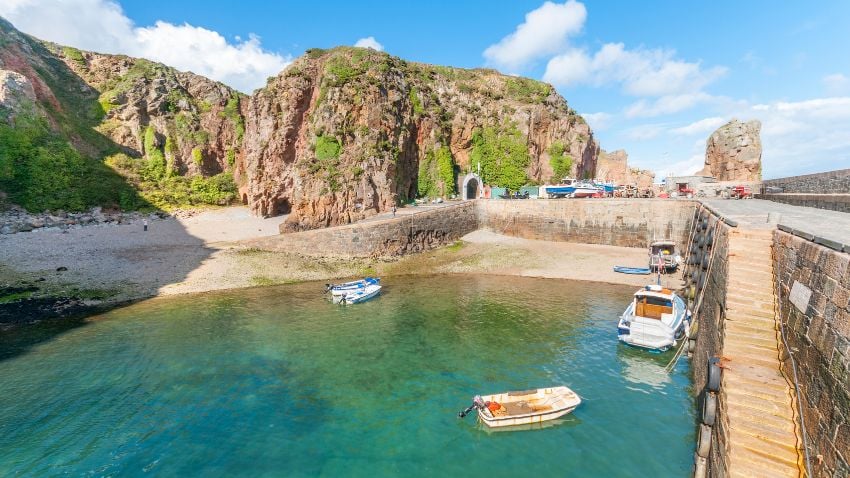
The Channel Islands have a rich history, with evidence of human habitation dating back to the Neolithic period
The Channel Islands are unique for several reasons. Firstly, they have a unique mix of British and French cultures, reflected in the islands' language, cuisine, and traditions. Secondly, the islands are renowned for their stunning natural beauty, with rugged coastlines, pristine beaches, and unspoiled countryside. Thirdly, the islands offer a favourable tax regime and a range of residency by investment options, making them an attractive destination for high-net-worth individuals.
In addition, the Channel Islands have a rich history, with evidence of human habitation dating back to the Neolithic period. The islands have been ruled by various powers over the centuries, including the Romans, the Vikings, and the Normans. Today, the Channel Islands are self-governing territories with their own parliaments and legal systems, but they remain closely tied to the United Kingdom.
The Channel Islands are a unique and attractive destination for high-net-worth individuals seeking a relaxed way of life and tax benefits. Jersey, Guernsey, and Sark each offer their own unique culture and lifestyle, with a strong sense of community and a high standard of living. While the Channel Islands are not part of the European Union, they offer a separate relationship with the UK and a thriving economy. The Channel Islands offer many benefits and opportunities for those seeking to preserve their wealth and enjoy a peaceful way of life.
If you want the best intel from the expat world, including profitable offshore opportunities, little-known tax-saving strategies, and hard-won insights on immigration, passports, and Plan-B residencies, all delivered to your inbox every single week, then join our daily correspondence, EMS Pulse®. Currently enjoyed by over 84,000 expats and expat-hopefuls worldwide. Fill in the form below to join our newsletter free:

Written by Mikkel Thorup
Mikkel Thorup is the world’s most sought-after expat consultant. He focuses on helping high-net-worth private clients to legally mitigate tax liabilities, obtain a second residency and citizenship, and assemble a portfolio of foreign investments including international real estate, timber plantations, agricultural land and other hard-money tangible assets. Mikkel is the Founder and CEO at Expat Money®, a private consulting firm started in 2017. He hosts the popular weekly podcast, the Expat Money Show, and wrote the definitive #1-Best Selling book Expat Secrets - How To Pay Zero Taxes, Live Overseas And Make Giant Piles Of Money, and his second book: Expats Guide On Moving To Mexico.

Panama’s geographic size is modest, but its global relevance is not. The country connects two oceans and two continents, operates on a dollarized...

Honduras’ newly elected president, Nasry Asfura of the conservative National Party, was sworn in on January 27, 2026. The election, held on November...

For a growing number of Americans, cost-of-living math no longer works. Housing feels harder to reach, everyday costs keep climbing, and long-term...